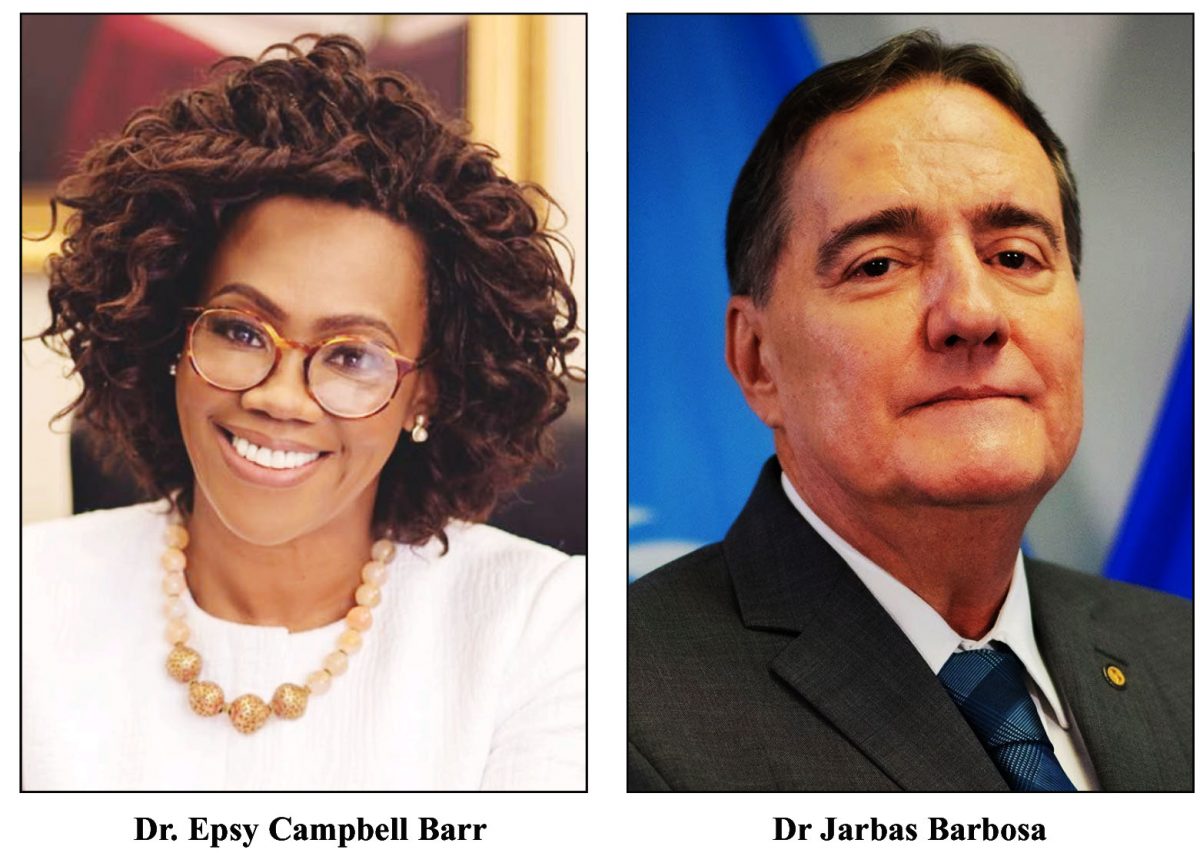The Director of PAHO, Dr Jarbas Barbosa, yesterday called for mental health to be placed at the top of political agendas in order to address worsening conditions in the Americas due to the COVID-19 pandemic.
“The mental health of the population of the Americas has been severely impacted by the COVID-19 pandemic,” Dr. Barbosa said at a media briefing in Washington to launch a key report.
A New Agenda for Mental Health in the Region of the Americas, provides the Pan American Health Organisation (PAHO) with ten recommendations for countries on how to improve mental health care.
A release yesterday from PAHO said that while mental health has historically represented a significant source of disability and mortality in the Americas, accounting for nearly one-third of all years lived with a disability, the COVID-19 pandemic compounded the risk-factors for mental health issues, including unemployment, financial insecurity, and grief and loss.
Despite the high level of mental health issues in the Region, the vast majority of those with a condition do not receive the care they need. In 2020, more than 80% of people with a severe mental health condition, including psychosis, did not receive treatment the release said.
To address these issues, in May 2022 PAHO established the High-Level Commission on Mental Health and COVID-19. The Commission, which is made up of 17 experts, was tasked with providing guidance to PAHO and its Member States on how to nurture mental health in the Region during and after the pandemic.
The Commission’s report yesterday set out the following recommendations on how to improve mental health care:
* Elevate mental health at the national and supranational levels.
* Integrate mental health into all policies.
* Increase the quantity and improve the quality of financing for mental health.
* Ensure the human rights of people living with mental health conditions.
* Promote and protect mental health across the life course.
* Improve and expand community-based mental health services and care.
* Strengthen suicide prevention.
* Adopt a gender transformative approach to mental health.
* Address racism and racial discrimination as a key determinant of mental health.
* Improve mental health data and research.
Barbosa highlighted that the lack of access to care is due to a variety of factors that pre-date the pandemic, including: low investment – only 3% of countries’ health budgets are assigned to mental health; a reliance on long-stay hospitalization when the majority of mental health problems can be handled in the community; a chronic shortage of trained mental health personnel; and lesser access to services for those living in vulnerable situations.
“Investing in mental health is crucial to promote equitable and sustainable human development for all to live with well-being and dignity,” Dr. Epsy Campbell Barr, Chair of the Commission and former Vice-President of Costa Rica, said yesterday.
“We must remember that the mental health burden is not a private struggle but a public health crisis that warrants urgent and immediate action.
“Today, we don’t just launch a report; we launch a beacon of hope, a roadmap for change in how we view, treat, and prioritize mental health in the Americas. It is now in our hands to shift how we approach mental health, especially in a global crisis that has profoundly affected it,” added Dr. Nestor Mendez, Co-Chair of the Commission and Assistant Director General of the Organization of American States said.
PAHO said that in 2020, during the COVID-19 pandemic, major depressive disorders jumped by 35% and anxiety disorders by 32%.
Further, 65% of countries reported disruptions to essential mental health and substance use services in 2020. This number dropped to 14% in early 2023.
Meanwhile, Guyana yesterday congratulated Campbell Barr and the commission on the launch of the report and adverted to the impact of the pandemic on this country.
Minister of Health Dr Frank Anthony said “The COVID-19 pandemic has had a negative impact on the mental health of many people in Guyana, as it has in other countries. Even before the pandemic, Guyana had inadequate mental health structures, obstacles to accessing quality mental health services, and insufficient funding, contributing to poor overall health in the country. To tackle this issue, the Guyanese government has prioritised mental health and is working to address the growing mental health challenges faced by the population.
“It is clear that there have been significant actions taken to prioritise mental health in the National Health Sector Plan. These actions include giving mental health a higher priority, adding it to the essential healthcare services package, allocating more funding to mental health services, strengthening the governance structure, reviewing and updating mental health laws in line with human rights, and developing a process for community-based mental health services for people of all ages”, he said.
He said that Guyana fully supports all ten recommendations outlined in the report and is committed to collaborating with other nations in the Americas to address mental health challenges and enhance the overall mental well-being of people in the region.






